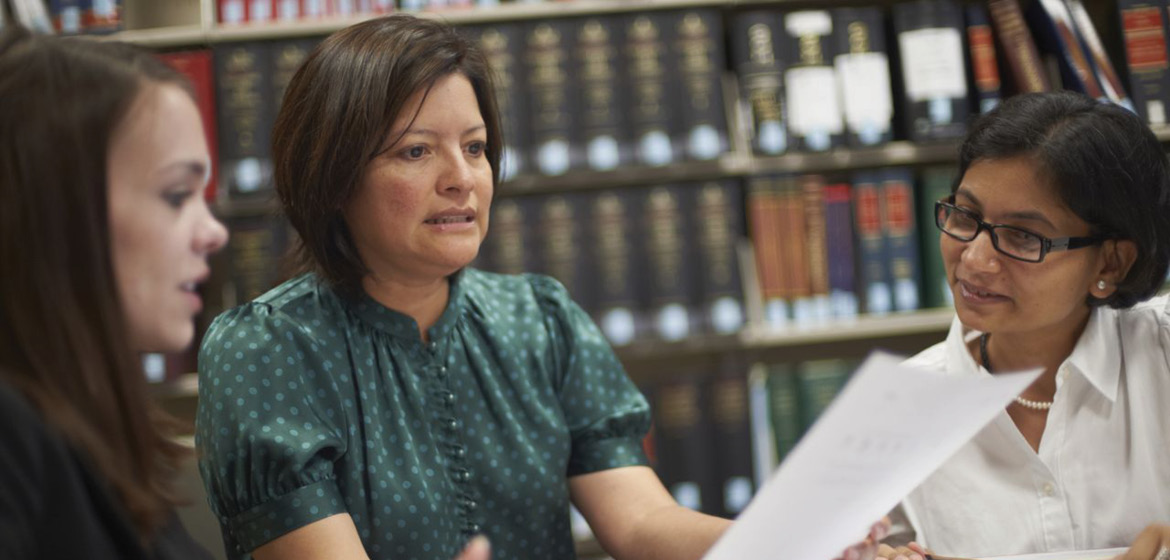Law Immigration Law Clinic (10th Anniversary)

In August 2010, the Immigration Law Clinic at MSU opened its doors and began offering pro-bono legal services for the community. In the years since, students from the clinic have represented people from over 84 different countries, with cases referred to the clinic from across the U.S.
Under Michigan’s student practice rules and the close supervision of Veronica Thronson, clinical professor of Law and director of the MSU Law Clinics, students get their first opportunity to manage a legal caseload and work with clients through the clinic. Due to the nature of the services provided by the clinic, they see a wide array of challenging cases that require them to learn and adapt quickly.
“Not only are we providing that educational opportunity for the students, but we are also filling a need in the community,” said Thronson.
The Immigration Law Clinic has expertise in working with unaccompanied children, and for several years was contracted to represent every child placed in Michigan by the Office of Refugee Resettlement. The clinic has also helped 288 clients (and counting) to receive lawful, permanent resident status in the U.S.
Law student, Rosie Beale, was able to represent a client in a naturalization case and will never forget the day that she helped her client achieve U.S. citizenship.
“It was an amazing experience,” said Beale. “It’s so fulfilling to help people who need it.”
The clinic has a high rate of success with the cases they take. Students also work with interpreters for clients who cannot speak English. One student at the clinic, Leslie Vazquez, worked her own cases, as well as helping her fellow students as an interpreter for Spanish-speaking clients.
“It’s much more than a class. It’s much more than just a grade,” Vasquez said. “To be able to use the resources and privileges I have to be able to help them and represent them in a system that is so complicated and convoluted is rewarding for me.”
As immigration law continues to change in the U.S., the clinic provides a space where students can learn and adapt to those changing policies while helping the community in an incredibly meaningful way.
“I’m really grateful to be able to help the people that need it the most, especially in these times of uncertainty with the ever-changing immigration laws,” Vazquez said.
Now celebrating its 10th anniversary, the clinic continues to be a place for students to learn not only how to practice law, but how to respect and value clients from all different cultures and backgrounds.


